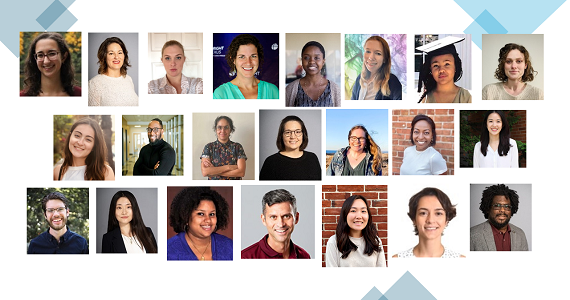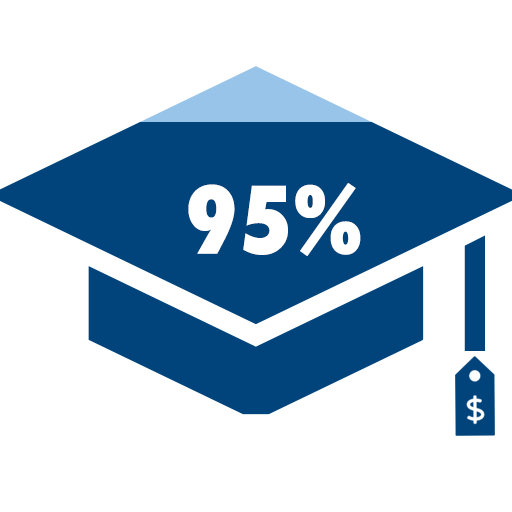What is a PhD in Community Health and Prevention?
The Doctor of Philosophy (PhD) in Community Health and Prevention is a full-time degree program offered at Drexel University Dornsife School of Public Health that entails a high-quality, rigorous doctoral education in the social and behavioral sciences.
This degree program is designed to advance doctoral-level public health graduates who have a broad-based, systemic understanding of public health scholarship related to the social and behavioral determinants of health and illness.
Students enrolled in Drexel Dornsife's PhD in Community Health and Prevention focus on the application of interdisciplinary, theoretical, and applied research paradigms to the understanding and prevention of public health problems.
Current doctoral students in the PhD in Community Health and Prevention program have varied research interests. These research interests include:
- Reproductive health
- Obesity
- Autism
- Violence prevention
- Global health
- Mental health
Why Pursue a PhD in Community Health and Prevention at Drexel Dornsife?
Unique benefits of the PhD in Community Health and Prevention program at Drexel University Dornsife School of Public Health include:
- The School's close-knit academic community offers a tailored small-class doctoral experience, set within a top-tier research university, offering access to award-winning faculty, coursework and resources across Drexel's 15 schools and colleges.
- Drexel University's commitment to being "the most civically engaged university in the country" drives its partnerships in Philadelphia and throughout the region, offering students meaningful research and leadership opportunities.
- The opportunity to work closely with and be mentored by faculty from diverse backgrounds conducting externally funded research.
- Students can further specialize by choosing a minor from Drexel University's graduate minors.
- Fully funded research and teaching fellowship opportunities are available at the CEPH-accredited number one school of public health in Philadelphia.
All applicants are automatically reviewed for a graduate assistantship, which includes full tuition remission, a health insurance subsidy and a stipend in exchange for 20 hours-a-week of teaching and/or research support, based on department needs. Graduate assistantships can be renewed yearly based on student's performance and available funding.
Prospective doctoral students are also eligible for the Urban Health Collaborative Doctoral Fellowship Program. Fellows will be supported to conduct urban health research under the mentorship of a faculty research sponsor. Fellows will receive a stipend, full tuition remission and additional support for research and travel. Awards are renewable for a second year.
PhD in Community Health and Prevention Competencies & Learning Objectives
Upon graduation from the PhD in Community Health and Prevention, students will develop competencies in the following areas:
- Analyze the social and behavioral determinants of health and illness at the individual, community, and societal levels, and the mechanisms required to design and evaluate interventions at all levels to improve health and address health inequity
- Develop and apply theoretical frameworks to formulate research questions relevant to the above areas of scholarship
- Use a broad range of methodological approaches to design and conduct research addressing these research questions with the highest ethical standards
- Disseminate findings to a wide range of stakeholders and engage in both scientifically rigorous and socially responsible processes to translate findings to improve the health of the public
- Develop a strong professional identity and prepare to contribute meaningfully in a career as a scientist, administrator, and/or educator, to ensure the continued impact of the social and behavioral sciences in public health
Enhance your career and professional development with a PhD in Community Health and Prevention. Start your application today.
Request more information
The PhD in Community Health and Prevention Programs seeks students who are interested in pursuing a rigorous doctoral education in the social and behavioral sciences, including opportunities to advance their research and collaborate with faculty and local organizations.
Admissions Requirements for the PhD in Community Health and Prevention Program
The PhD in Community Health and Prevention is a full-time degree program that entails a high-quality doctoral education in the social and behavioral sciences.
To be considered for the PhD Program in Community Health and Prevention offered at Drexel Dornsife, applicants must meet the following requirements:
- Completion of a bachelor's and master's degree, with significant training in disciplines related to the social and behavioral sciences (sociology, psychology, communications, political science, history, geography, etc) or a health discipline (public health, social work, medicine, nursing, nutrition, etc).
- For outstanding candidates, significant research or professional experience may substitute for a prior master's degree. Typically a minimum of 2-3 years of post-baccalaureate experience will be expected.
- Evidence of prior research and scholarly experience in areas related to public health.
- Evidence of intellectual capacity and readiness to conduct rigorous independent research at the doctoral level, including strong performance in relevant coursework. Especially for prospective students whose native language is not English, evidence of strong skills in analytical writing and English comprehension.
Application Requirements for the PhD in Community Health and Prevention Program
To have a PhD in Community Health and Prevention application be considered, applicants must submit the following documents:
- Online application
- Official transcripts from every college-level institution you attended (academic records from institutions outside the U.S. must undergo a credentials evaluation).
- English proficiency test score (TOEFL or IELTS), if applicable
- Three letters of recommendation from faculty or professionals who can evaluate the applicant’s potential for doctoral studies
- Resume or curriculum vitae
- Statement of Purpose and Objectives (including career goals, doctoral research interests and fit with a desired faculty mentor)
- Writing sample
A note on official GRE test scores: GRE scores will not be a part of the Drexel University Department of Community Health and Prevention application for those applying for Fall 2024 entry. The Admissions Committee will continue to evaluate candidates based on a holistic and overall assessment of the required application materials.
Applicants to the PhD program should submit their application and all materials through SOPHAS – the Centralized Application Service for Public Health.
Learn more about Application and Admissions Requirements
How Long is the PhD in Community Health & Prevention Program at Drexel Dornsife?
The doctorate in community health & prevention program consists of two years of required and elective coursework. Following the structured coursework, it takes students an average of two years to develop their dissertation proposal and complete their dissertation. The maximum amount of time given to complete the program is seven years.
For more information read the Time to Completion/Length of Study Policy on the Drexel Graduate College's website.
Request More Information
PhD in Community Health and Prevention Curriculum
With a curriculum grounded in Drexel Dornsife's long-standing commitment to human rights and social justice, the PhD in Community Health and Prevention program encourages students to conduct original research to advance understanding to benefit the public's health.
Students propose a course of study that builds skills and knowledge in three areas:
- Social Factors/Behavioral Sciences/Communications Electives or Special Topics
- Biostatistics/Methodological Electives or Special Topics
- Public Health or Topical Area Electives or Special Topics
Required Courses to Complete a PhD in Community Health and Prevention
The PhD program requires two full years of structured coursework, consisting of both required and elective courses in the Dornsife School of Public Health and in other academic units across Drexel University.
In addition to the required coursework, students will master three areas of additional training.
Required courses in the program include:
- CHP 801 Theory & Practice of Community Health & Prevention I - 3 credits
- CHP 803 Research Methods for Community Health & Prevention - 3 credits
- BST 560 Intermediate Biostatistics I - 3 credits
- CHP 903 Advanced Proposal Development - 3 credits
- CHP 807 Public Health Ethics - 3 credits
Students have the ability to select courses that align with their research and professional interests, as well as the skills needed for their dissertation. All courses must be at the graduate level, except with special permission; undergraduate courses will not count towards degree completion.
Courses must be graduate coursework in the Community Health & Prevention department, other departments at the Dornsife School of Public Health, or in other Schools and Colleges at Drexel.
Degree Requirements for the PhD in Community Health and Prevention
In order to receive a PhD in Community Health and Prevention, students must meet the following academic requirements:
- A minimum of 90 credit hours
- Developing and completing a dissertation
To learn more about courses, curriculum, and sample plans of study, please follow the links below:
Review Degree Requirements and Courses
Sample Plan of Study
What Can You Do With a PhD in Community Health & Prevention?
A PhD in Community Health & Prevention prepares individuals to lead as public health scientists, researchers, educators, and professionals.
With a PhD in Community Health & Prevention, individuals have the opportunity to explore unique and valuable career paths, including:
- Public Health Scientist
- Public Health Administrator
- Program Director
- Community-Based Researcher
- Health Educator
- Program Developer
- Health Policy Consultant
Where Can You Work With a PhD in Community Health and Prevention?
Individuals with a PhD in Community Health and Prevention can work in a broad range of academic, policy, and service settings both in the United States and globally, including:
- Higher Education Universities
- Research Institutes
- Government Entities
- Hospitals and Healthcare Centers
Students graduate from the PhD in Community Health & Prevention program with a strong professional identity, prepared to ensure the continued impact of the social and behavioral sciences in public health through a meaningful career.
To learn more about the PhD in Community Health and Prevention, request more information and get in touch with one of our academic advisors today:
Request more information

Community Health and Prevention Doctoral Students
Drexel's doctoral students in the Community Health and Prevention program are experienced and passionate researchers in the social and behavioral sciences.
Meet current students

Paying for Your Public Health Degree
Ninety-five percent of PhD students receive tuition remission, stipend, and health insurance.
In general, PhD students finance their education through a variety of sources, and the Dornsife School of Public Health provides financial support through training grants, scholarships, stipends, and working as a teaching or research assistant.
Explore scholarships and financial aid